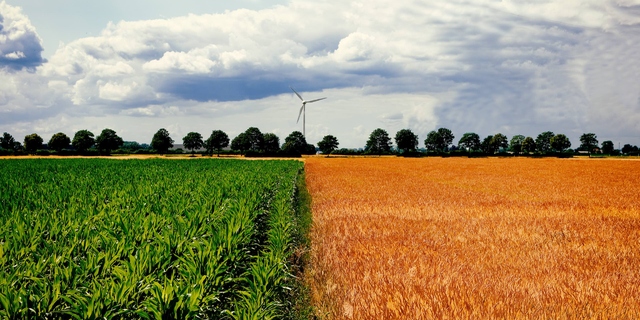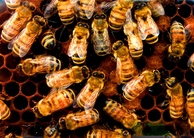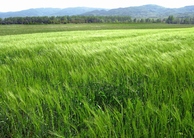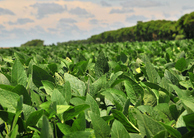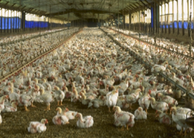|
Production (tagged articles)
The keyword Production is tagged in the following 21 articles.
2017, Vol. 9 No. 02
The necessity to grow crops faster and more efficiently has long been a goal for the agriculture industry. Now, through the development of GMOs, this goal is being achieved. However, many critics doubt the reputation of GMOs, instead arguing that... Read Article »
2016, Vol. 2016 No. 1
This paper explores the differing effects that conventional and organic agriculture have on soil ecosystems. The findings are primarily based on a review of published literature found in journal articles and government reports. Conventional agriculture... Read Article »
2015, Vol. 6 No. 1
This paper examines the potential effect of decreasing honeybee population on crop prices by estimating the relationship between honeybee population and the price of almonds over time. As a declining honeybee population becomes an increasingly salient... Read Article »
2015, Vol. 6 No. 2
Filmmaker Wes Anderson has developed a distinct aesthetic style that is easily recognizable through his use of striking color palettes. The purpose of this research was to draw conclusions about social stratification, social construction and the... Read Article »
2015, Vol. 7 No. 09
Energy researchers have recently taken interest in the use of switchgrass (Panicum virgatum) as a biofuel. Arbuscular mycorrhizal fungi (AMF), which are known to increase plant acquisition of nutrients through a symbiotic relationship, may be used... Read Article »
2015, Vol. 5 No. 1
As a predominantly rural and densely populated developing nation, India is positioned at the vanguard of the global debate surrounding GMOs. As concerns related to food security mount, what transpires in India is of great importance. Citizens' collective... Read Article »
2015, Vol. 5 No. 1
The Production, distribution, and consumption of music are highly international transactions. In the past, what made them so was the proliferation of American music throughout the rest of the world. Recently, however, things have begun working in... Read Article »
2014, Vol. 10 No. 3
When browsing the grocery aisle, consumers are bombarded with and confused by a myriad of special labels. “Organic,” “whole grain,” “all natural,” and “cage-free,” are just some of the more popular... Read Article »
2014, Vol. 8 No. 1
President Grimsson studied economics and political science at the University of Manchester, and in 1970, became the first person in Iceland to earn a PhD in political science. In 1973, he became a Professor of Political Science at the University... Read Article »
2014, Vol. 4 No. 1
There is a growing public concern over the genetic alteration and use of chemicals in conventionally produced agriculture. The perceived risk of such agricultural Production has prompted the rising popularity of organic alternatives in both developed... Read Article »
2014, Vol. 10 No. 3
A genetically modified (GM) crop is defined as a recombinant-deoxyribonucleic acid plant, in which genetic material has been changed through in vitro nucleic acid techniques (Food and Agriculture Organization of the United States, 2014). Food and... Read Article »
2014, Vol. 10 No. 3
Although current methods of pig farming now allow cheap pork availability to consumers throughout America, they come at high costs. Through interviews with Ohio pig farmers and research on current and historical developments in the industry, this... Read Article »
2014, Vol. 10 No. 3
Soybeans first appeared on the world stage when Chinese farmers began cultivating them around 1100 B.C. (North Carolina Soybean Producers Association, Inc.). The plant quickly spread to the rest of Southeast Asia and became an integral part of the... Read Article »
2014, Vol. 5 No. 1
The author examined the significance of Production design in film. This paper reviewed scholarly articles on the evolution of Production design and applied her findings to analysis of Baz Luhrmann’s 2013 rendition of The Great Gatsby. This... Read Article »
2014, Vol. 6 No. 04
The copious amounts of forgotten and disregarded food that are tossed mindlessly into our landfills are a global travesty of massive proportions. Americans alone waste enough food in a day to transform the Rose Bowl, a football stadium capable of... Read Article »
2013, Vol. 3 No. 1
Regardless of the fact that we have long been warned of the negative impact of industrial farming, rural communities are being wiped out as local producers, like Riverbend Gardens, are put at risk in favour of urban expansion. The industrial food... Read Article »
2014, Vol. 2013/2014 No. 1
The concept of food security is dynamic; it has been changing to incorporate new ideas over the years since it was established. In this piece, I will argue that if cultural acceptability is to be added as a tenant of food security then so must sustainability... Read Article »
2013, Vol. 4 No. 2
Film authorship has been a topic of debate in film theory since the Cahiers du Cinema critics first birthed auteur theory. Andrew Sarris used this theory to categorize directors based on their level of artistic authorship, solidifying the idea that... Read Article »
2013, Vol. 3 No. 2
Three visions of attaining sustainability through urban gardening – at the individual, community, and city level – are explored visually by MacEwan University Design Studies students–Molly Kassian, Nick Larson, and Sherece Burma... Read Article »
2012, Vol. 4 No. 08
Nelson Mandela once said, "You can never have an impact on society if you have not changed yourself." This quote is particularly applicable to the field of energy, and the transition from an unsustainable fossil fuel consuming world, to one based... Read Article »
2010, Vol. 2 No. 03
Twentieth Century Fox was right to question the likelihood of box-office success for James Cameron’s $200 million film Titanic: “an Edwardian period piece, a costume film, a romance, a story whose ending was known – and a &lsquo... Read Article »
Expedited Article Review
Submit an article and get a decision fast.
If you need a fast decision, INQUIRIES Journal offers expedited processing of your submission for a small fee. Depending on the expedited review option you choose, you can receive a decision in as few as 5-days.
In addition to a shorter review period, the fee supports the journal's continued operation and open-access publishing model. Standard submissions are always free. Submit Now » - Submit an Article to Inquiries Journal -
|

